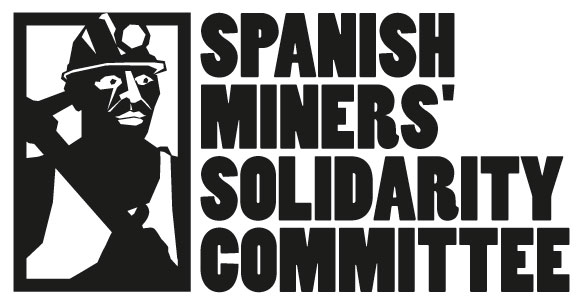Hundreds of coal miners have arrived in Madrid today [10 July], after having walked between 400 and 500 km from the different mining regions in Spain (Asturias, León, Aragón and Puertollano). The determination and militancy of their struggle, entering now day 43 of an all out strike, have captured the imagination of wide layers of Spanish workers and youth who will come out today and tomorrow for a massive demonstration of working class solidarity.
 Miners' march to Madrid PIC: Periodismo HumanoSpanish miners are fighting against the decission of the Spanish right wing government to cut subsidies to coal mining by 63% this year. This would mean the destruction of about 8,000 direct jobs and a further 20 or 30,000 indirect jobs which depend on them. For nearly a month and a half miners have marched, organised a general strike of the mining valleys, set up barricades blocking highways and railway lines, clashed with the police and suffered brutal repression at the hands of the anti-riot units of the Civil Guards (the hated militarised police force).
Miners' march to Madrid PIC: Periodismo HumanoSpanish miners are fighting against the decission of the Spanish right wing government to cut subsidies to coal mining by 63% this year. This would mean the destruction of about 8,000 direct jobs and a further 20 or 30,000 indirect jobs which depend on them. For nearly a month and a half miners have marched, organised a general strike of the mining valleys, set up barricades blocking highways and railway lines, clashed with the police and suffered brutal repression at the hands of the anti-riot units of the Civil Guards (the hated militarised police force).
Hundreds of them have marched for the last few weeks covering the route from the mining regions towards Madrid, welcomed on their way by hundreds, thousands of people. Others have spent nearly two months hundreds of meters underground, locked up in the pits.
Tonight there will be a night time march to the emblematic Puerta del Sol, the site of the indignados protests for the last year and tomorrow, Wednesday, a massive demonstration will accompany the miners to the building of the Industry Ministry.
They are fully aware that this is a life or death struggle. If the mines are finally closed, whole valleys will be dead from an economic point of view.
In their clashes with the anti-riot unit of the Civil Guards (the GSR), the miners have developed their methods and created their own weaponry. Small groups of miners come down from the hills, quickly build barricades on main roads, set them on fire and retreat back into the woods, from where they wait for the Civil Guards to turn up and then throw flares and pyrotechnic rockets at them with home made rocket launchers.
Here's a video of one such incident in Siero:
Miners have also defended the collieries against attacks from the police, as can be seen in this excellent report by Periodismo Humano of one such battles at Pozo Sotón.
During the strike the violence of the Civil Guards, probably frustrated at not being able to stop the road blocks, has increased and has also been used to terrorise whole towns and villages in the mining areas. In Ciñera, León, the riot police has invaded the town on several occasions, patrolling the streets, entering into peoples' homes, firing rubber bullets and tear gas at the windows of flats, etc. One such assault is described in the following video:
The Asturian town of Pola de Lena has also witnessed similar clashes in which a 9 year old girl who was watching from her flat window was hit by a rubber ball fired by the riot police. Clashes in Pola de Lena can be seen in this video:
and this is a strong message from a miner at the barricades in Pola de Lena:
The militancy of the miners has inspired a largely spontaneous solidarity movement across the country, with dozens of local branches of United Left and the Communist Party, as well as trade union branches, organising buses to go to Madrid to march with the miners tomorrow. Unfortunately, the trade union leaders have not been up to the task. They should have organised a national solidarity campaign, with mass meetings in all workplaces, collections for the miners' funds leading up to at least a national day of action on July 11, the day the miners will march in Madrid.
There is a widespread feeling that the miners are in reality not only struggling to save their jobs and the future of the mining valleys, but also standing up for the working class as a whole, a bastion of resistance against cuts and attacks on workers wages and conditions being imposed on the back of the capitalist crisis. So far the government has been provocative in its rejection of the miners' demands. The miners have walked all the way to Madrid and are not prepared to go back empty handed.
The full strength of the Spanish workers and youth must be mobilised to support their struggle, and that should be linked up with the general struggle against austerity cuts.
In Britain, a Spanish Miners' Solidarity Committee has been established. We make an appeal to all trade union and youth activists to get involved in its work.


